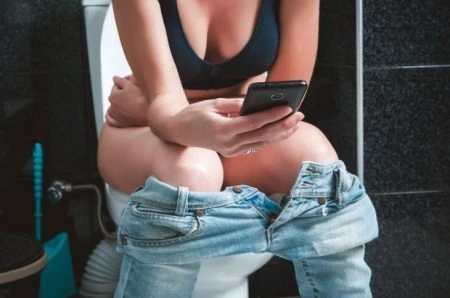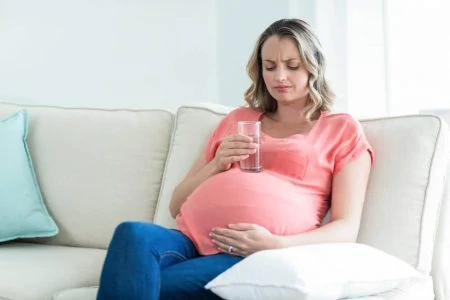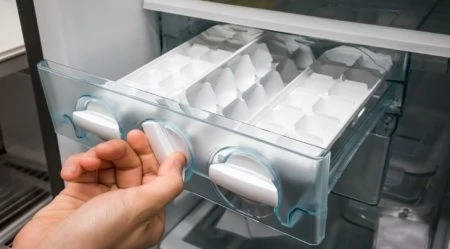Have you noticed a significant increase in urination since becoming pregnant? Are you wondering what is going on and how you can fix it?
Frequent urination during pregnancy is just another one of the symptoms associated with the journey to motherhood. Having been there ourselves, we understand the challenges, and we’ve picked up some tips to help reduce your number of bathroom visits.
We’ll discuss what to expect regarding urination and pregnancy and what is considered normal. We’ll also explain why your urination patterns differ during each trimester.
Key Takeaways
- Frequent urination during pregnancy is caused by hormones, an increase in blood volume and the growing baby putting pressure on the bladder.
- Most women notice an increase in bathroom trips around 4-6 weeks of pregnancy.
- To reduce the number of bathroom trips, try leaning forward when urinating, avoiding diuretics, doing Kegel exercises, avoiding excess fluids before bedtime and wearing a pad in the third trimester.
Causes of Frequent Urination During Pregnancy
Several factors contribute to the increase in the frequency of urination when pregnant. Some of these factors include:
Hormones
The main culprit behind this increase in urination is your hormones. Like most pregnancy-related symptoms, those hormones tend to manipulate even the simplest changes within your body (1).
Pregnancy hormones tell your body to direct more blood flow to your kidneys. When your kidneys receive more blood flow, they make more urine, filling your bladder more quickly and bringing on those frequent urges.
Increased Blood Volume
Your body has a significant increase in blood volume once you get pregnant. This causes the kidneys to process more fluids than normal, which results in frequent trips to the bathroom. The fluids in your pregnant body almost double compared to normal levels.
Your Growing Baby
At the beginning of your pregnancy, frequent urination results from hormonal and blood level changes. Once your baby begins to grow, they end up putting pressure on your bladder. The pressure limits the amount of time your bladder can last without being emptied.
When Does Frequent Urination Begin?
Most women think of frequent urination as being an early pregnancy symptom. You will usually notice an increase in trips to the bathroom around the fourth to sixth weeks of pregnancy. Many expectant mothers will notice this increase before experiencing a missed period (2).
How To Reduce Your Number of Bathroom Visits
You will quickly realize your urge to urinate seems to interrupt your daily routine more than you would like. Unfortunately, this is a part of pregnancy that you can’t avoid. But there are ways to cut out a couple of those trips each day.
1. Lean Forward When Urinating
By leaning forward, you allow your bladder to empty more completely. It is also useful to wait a couple of seconds after you empty your bladder and try to pee again. This is called double-voiding, and it can help ensure you have eliminated all urine.
2. Stay Away From Diuretics
Try to avoid drinks like soda, tea, or coffee. These drinks contain caffeine, which is a diuretic. These drinks can increase your urge to pee, which alone can cause more bathroom trips. You should limit your caffeine intake to less than 200 milligrams a day — about a cup and a half of coffee (3).
3. Do Kegel Exercises
Most pregnant women will become all too familiar with Kegel exercises before the birth of their baby. Not only do these exercises help you learn to control muscles for labor and birth, but they can help you gain control of your urethra. By gaining more control, you can increase the time between your bathroom breaks (4).
4. Avoid Excess Fluids Before Bedtime
If you wake up numerous times in the middle of the night to go to the bathroom, start limiting your fluid intake before bed. Your sleep is precious these days, and bathroom visits shouldn’t hinder your shut-eye.
Your pregnant body retains fluids throughout the day, and when you lay down at night, your sleeping position allows the excess fluids in your legs to be processed by your kidneys. If you elevate your legs for even an hour a day, you can reduce your nightly bathroom visits (5).
Remember To Stay Hydrated
5. Wear a Pad
Once you reach your third trimester, or maybe even sooner, you will realize that laughing or coughing can cause you to expel urine. You shouldn’t feel embarrassed, but you can wear a pad if you want to prevent an uncomfortable position.
Not only can this help protect you from the unexpected, but you won’t have to run to the bathroom every time you cough or think something is funny.
When Does Frequent Urination End?
Your body will eventually adjust to the higher levels of hormones, but you’ll still have almost double the number of ordinary fluids. Frequent urination will always persist, but it won’t be as extreme throughout your pregnancy.
During the second trimester, you will probably experience some bathroom relief. This is because you have adjusted to the hormone levels, and your uterus rises in your abdomen. This relief is usually temporary.
You will probably experience the peak of your frequent urination during the third trimester. This is a result of your baby lowering into your pelvic area to prepare for delivery. Your baby puts pressure on your bladder, which causes you to have less control.
After Pregnancy
You will still experience frequent urination for several days after delivery. It takes time for your body to rid itself of the excess fluids, but once this happens, your body should adjust normally.
If you are still experiencing many bathroom visits after a couple of weeks, you should consult your doctor.
Is Frequent Urination a Problem?
It’s completely normal to experience a significant increase in your trips to the bathroom when you are pregnant. Urinating is a good sign because it means your body is getting rid of toxins.
But there are some warning signs you should be aware of when accompanied by frequent urination.
- Pain.
- Foul-smelling urine.
- Burning sensation.
- Cloudy urine.
- Blood in the urine.
- Fever.
- Persistent feeling of having to urinate.
The seven symptoms above can be associated with a urinary tract infection (UTI). It is best to consult your doctor if you are experiencing any of these symptoms. A UTI is easily treatable, but if left untreated, it can lead to more serious complications, such as premature labor.
Pregnant women are much more likely to suffer from a UTI, so don’t feel ashamed or disappointed that you did something wrong if you contract one.
Can You Hold Your Pee While Pregnant?
You should try to routinely empty your bladder whenever possible. Holding your urine for an extended period can lead to leakage issues that continue after pregnancy.
If you frequently hold your pee, you also increase your chances of developing a UTI.
If You Have Concerns
Pregnancy can be extremely overwhelming, and it’s okay to become hypersensitive to your body. After all, you are responsible for creating life.
If you are concerned with any factors associated with your pregnancy and urination, your doctor can administer tests to see if there are underlying issues (6).
If you have symptoms that your doctor has reason to believe are not associated with your pregnancy, they might conduct the following tests:
- Urinalysis: This helps detect high levels of proteins or infective bacteria present.
- Bladder stress test: This test will help the doctor determine how much accidental urine is leaking.
- Ultrasound: An ultrasound can be conducted to help diagnose potential problems to the kidneys, urethra, or bladder.
All of these tests are simple and non-invasive.
Never be embarrassed to bring up any concerns with your doctor. Part of their job is to help put your mind at ease. You know your body better than anyone else, so feel free to use your voice.
FAQs
The Bottom Line
It is impossible to endure pregnancy without frequent bathroom visits, but you don’t have to suffer. Once your body becomes accustomed to the new levels of hormones, you should feel some relief until the third trimester.
You can try to cut down on some of your bathroom trips by eliminating diuretics and being sure to empty your bladder as much as possible on each visit.
If you are trying to avoid waking in the middle of the night for bathroom breaks, cut back on liquids before bed, and reduce the amount of water-rich vegetables you eat in the evening.
Remember, it is essential to stay hydrated, so don’t cut back on liquids throughout the day in hopes of reducing your bathroom visits.











